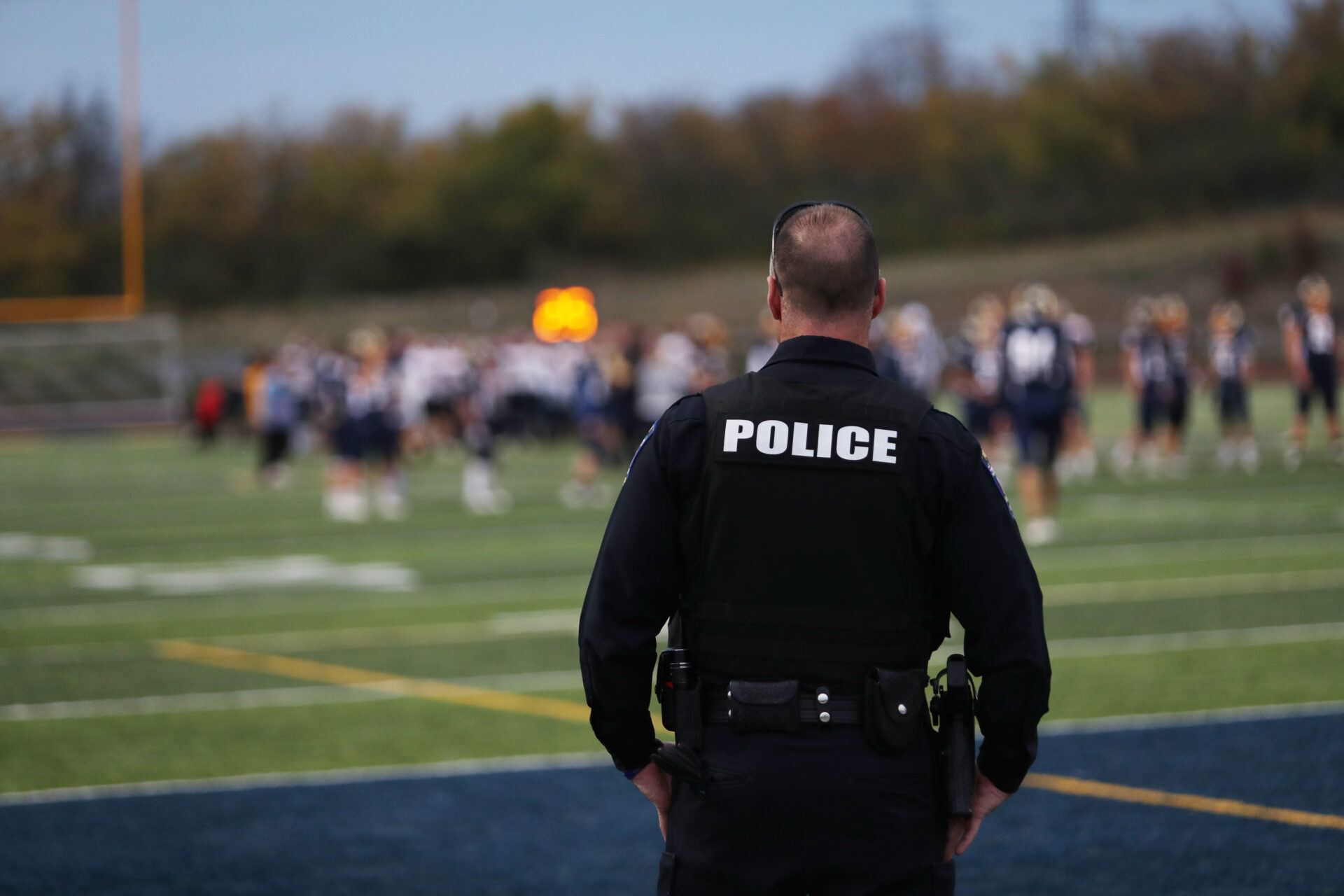Some of the state’s public schools are not in compliance with a safety requirement aimed at facilitating emergency response.
In an illustration of the need for such requirements, a school safety officer told the state Board of Education a possible school shooting in Cabell County last week may have been thwarted by a tip.
Tony Smith, an officer with the school safety unit, told the state Board of Education Wednesday the student had a manifesto and a list of students and administrators he planned to kill.
Jason M. Spears, Cabell County prosecuting attorney, confirmed to West Virginia Public Broadcasting that the incident is under investigation, but declined to comment further due to the ongoing nature of the situation, as well as the involvement of a minor.
“We take threats of school shootings, or violence in schools, very seriously and give them our utmost attention,” Spears said.
Yet, Smith told the board that not all districts are in compliance with a law that requires school safety programs.
“We still have some schools that drag your feet on it,” he said. “But we are telling those folks and superintendents, we got to have those. Those have to be up to date, because in an unfortunate incident that we got a hot call on, this stuff has to be up to date.”
Passed in 2019, House Bill 2541, titled the School Access Safety Act, requires county boards of education to implement school safety programs that include placing room numbers on exterior walls or windows of school buildings, and providing local first responders with up-to-date floor plans.
The plans should be provided by Sept. 1. Smith said some schools his team has reviewed have exterior numbers that do not match the room’s actual number inside the school. Numbering is an issue the board has focused on in recent months.
Jonah Adkins, director of the office of pre-K through 12 academic support for the Department of Education told the board in December that state superintendent Michele Blatt had offered to have the numbering and lettering created and delivered to non-compliant schools free of charge.
Board President Paul Hardesty said he wants the names of all schools that have not completed their crisis reports to be published on the board website immediately.
“Any school that does not have enough or think it’s important to comply with this, shame on you,” he said. “And we will expose you for what you are. And if that’s being mean, I’m just mean. I take this very seriously. That’s why school safety is a standing item on the agenda since I took this presidency.”
Smith said tips like the one that alerted officials to the situation at Cabell Midland come from the state’s See Send app, which allows all community members to notify authorities of concerns or report an incident.
“From Jan. 1 2023 to Jan. 1 2024, we had 537 tips,” Smith said. “Fifty-six of those were immediate threats, we have diverted some serious school violence. Thirty-eight of those involve some type of gun threat.”
Other Business
The board approved a statewide waiver of Policy 2340, section 4.8.a., allowing students attending virtual charter public schools to test remotely for the West Virginia General Summative Assessment in grades 3 – 8.
Board member Debra Sullivan was the sole vote against the approval of the waiver. She asked Vaughn Rhudy, director of assessment for the state Department of Education, why students of virtual charter schools could not go to a local brick and mortar to take their assessments as do students attending virtual programs administered directly by the state or county.
“That would be something that the charter schools would have to arrange with the counties and I think last year, what the virtual public charter schools did, because that provision wasn’t in state law last year,” Rhudy said. “I don’t know if they reached out to county schools to try to do that. I think that we’ve heard reports that some county schools were reluctant to do that to allow those students to come into their schools.”
Sullivan said it appeared that the waiver would give students of the virtual charter schools a privilege not afforded to other students.
“Even though we have all these virtual students across the state, in various iterations, a subset of them is being told that you can stay at home,” she said.
Sullivan also expressed concern that virtual students were being deprived of one of their few opportunities to have an in-person interaction with instructors and other students.
“Having children appear once a year to come in in person and take a test and see somebody’s face to face, it seems to me that that’s an important thing,” she said. “It’s good to have eyes on kids…It shouldn’t be considered a burden to bring kids in to be tested on site. “It’s really an opportunity for teachers to get to know these kids, because they don’t have that. And with everything being virtual, there’s a lack of connection.”
The waiver takes effect this spring and will utilize the Cambium Assessment Remote Testing/Proctoring tool. The school, proctors, parents and students are required to agree to all state requirements. The waiver does not apply to the West Virginia Alternate Summative Assessment, the English Language Proficiency Assessment-21 (ELPA) or the SAT School Day.
